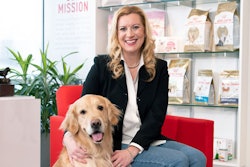
In recent days, several media posts and press releases promoting pet food market studies, both on Latin America and the global market, have appeared. This new pet food market research is surging, offering information on “upcoming pet food trends” and promising good growth prospects for the industry. In other cases, studies claim to have private information on regional and global market leaders.
Indeed, everyone wishes to know what is going to happen with the pet food industry in Latin America. For example, which ingredients would represent the next generation of products, or what are the upcoming consumer and channel requirements?
However, it is important to note that not all that glitters is gold, particularly in the context of exclusive information.
Syndicated pet food research new to Latin America
Syndicated pet food research is relatively new in Latin America. Previously, most market leaders were accustomed to requesting research projects tailor-made for their specialized companies, such as consumer studies, focus groups and similar analyses.
Nowadays, with the increasing interest in the industry and the adoption of qualitative and quantitative research approaches, more pet food manufacturers are requiring up-to-date market information with higher frequency.
It is essential that those research firms claiming to possess regional pet food market information have a multi-country presence. Yet, it is unlikely that any of these companies are indeed regional. Furthermore, to fully understand the local trends in pet food in Latin America, a research company must undertake recurrent and thorough research locally, using several methodological approaches on both consumers and competition.
Instead, a few emerging companies are often using research shortcuts that are methodologically incorrect and may deliver useless insights. Examples include web scraping pretending to substitute for secondary research or the use of in-country analysts hired to do the entire research job. Lastly, online consumer panels are useful but lack context and accuracy when run in isolation.
Responsible, professional research needed
It is good news that pet food research is becoming a necessary service, as more reliable information means better-informed decisions. However, responsible and professional research is key to keep the industry running confidently and unbiased.

















